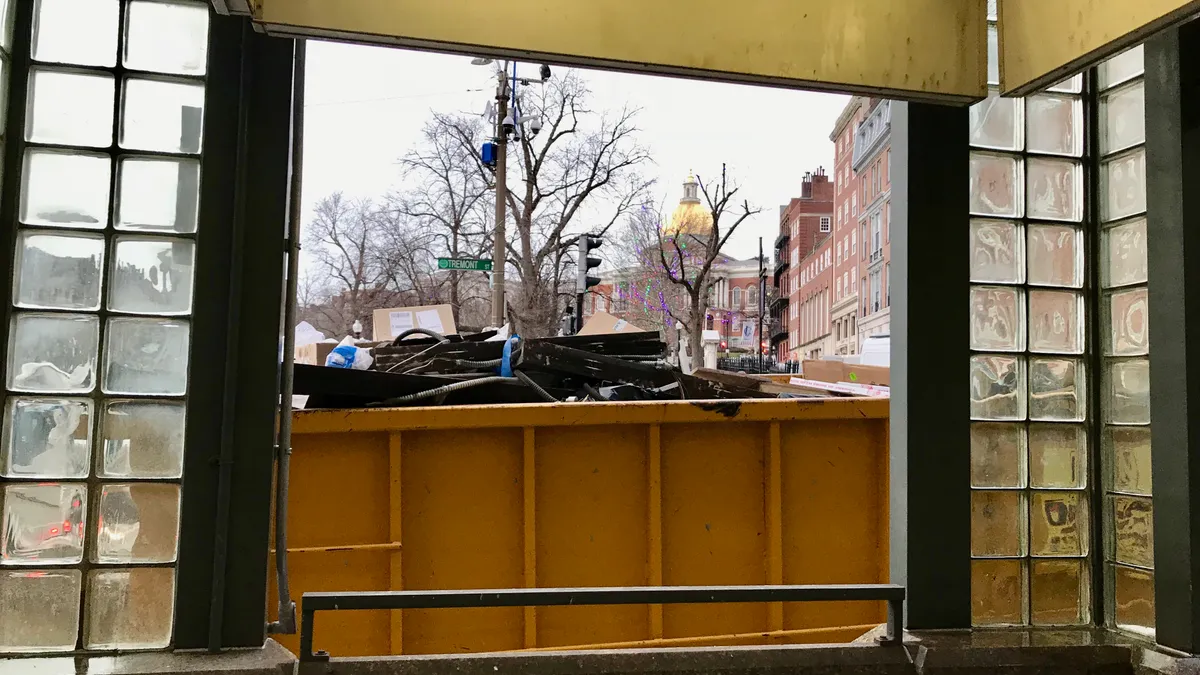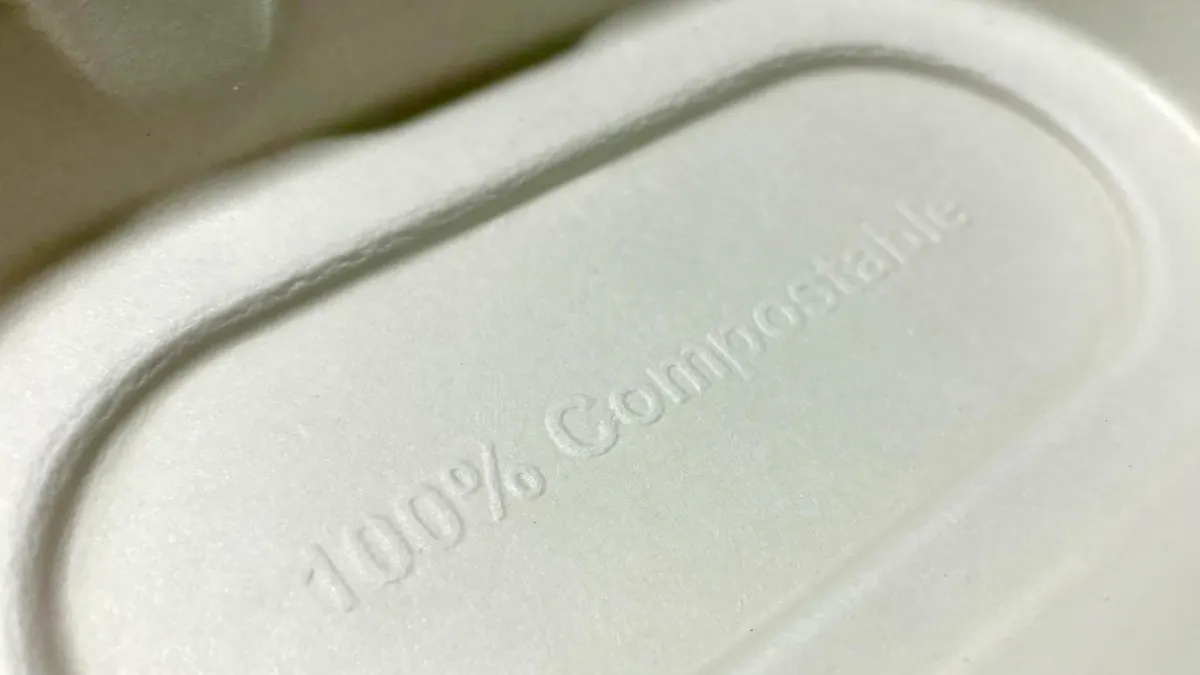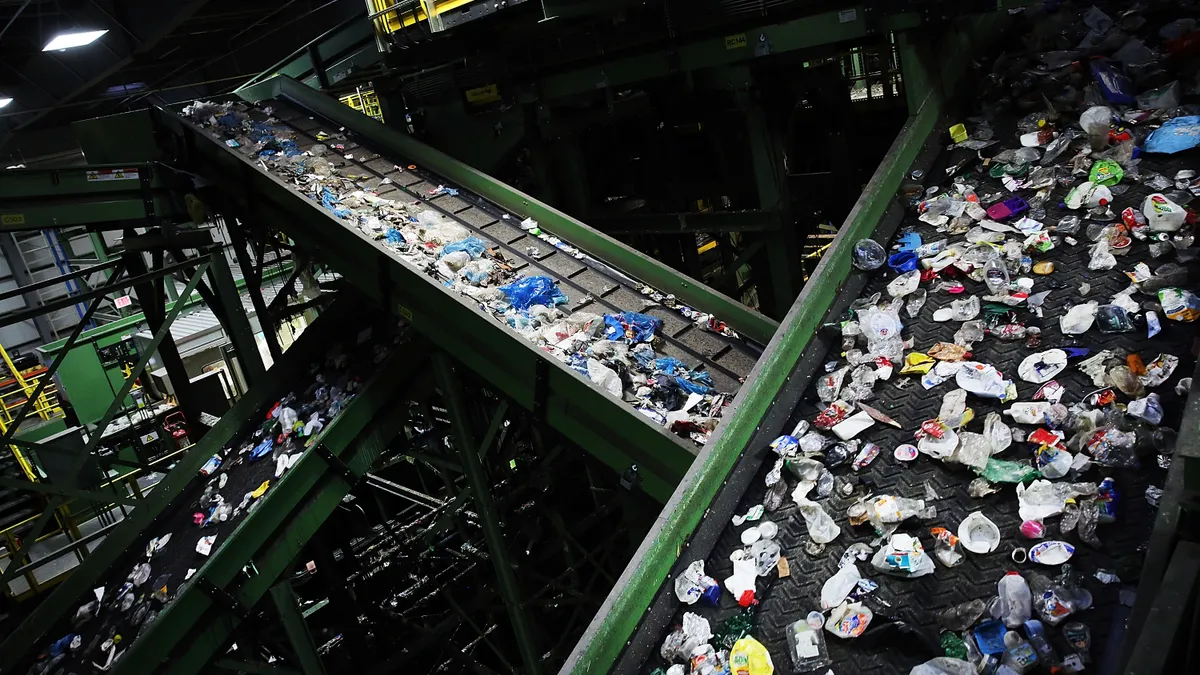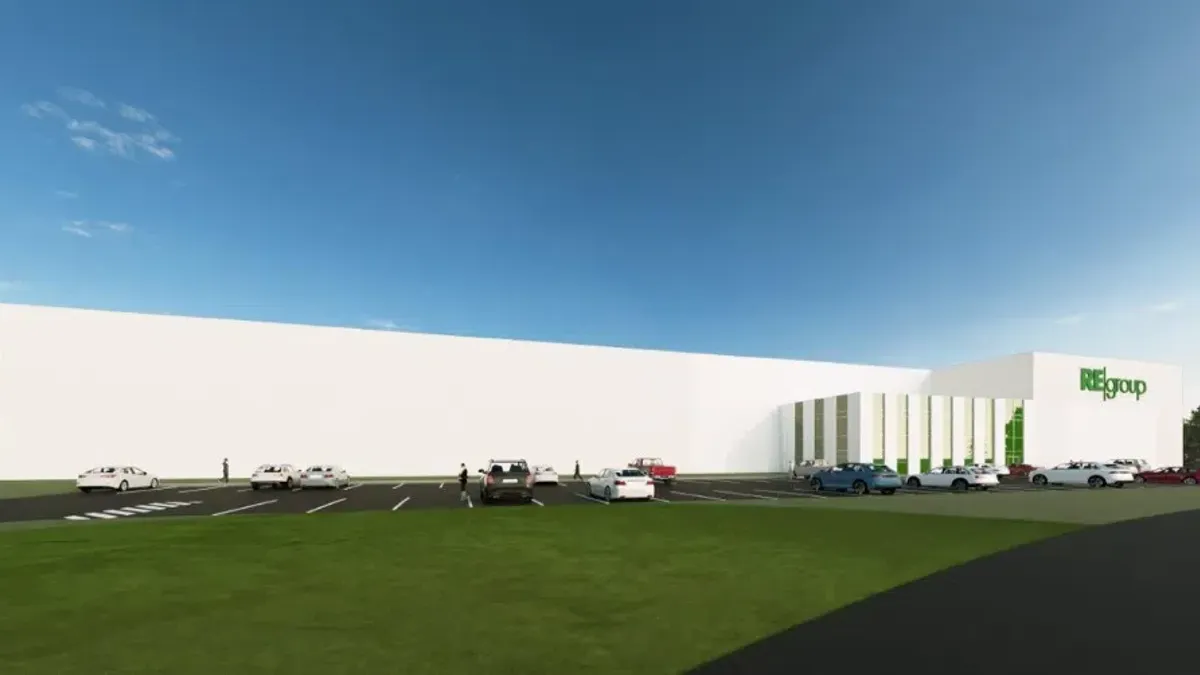The latest chapter in Houston's long-running recycling saga is over. FCC Environmental Services has scored a highly contested recycling contract, worth up to $36.8 million, and will be moving its U.S. headquarters to the city.
The Houston City Council approved this 15-year deal, with the option for one five-year extension, at its Jan. 10 meeting. This contract came in $11.6 million less than FCC's original proposal and is expected to be cheaper than the city's current arrangement, a point repeatedly mentioned by Mayor Sylvester Turner.
“It is a much better deal for the city of Houston," said Turner. "Every day that we delay is more money that we are paying."
Turner has been a staunch supporter of the deal ever since it was announced more than six months ago, but the process has been far from simple. The final vote was postponed numerous times for reasons including a decision to reopen bidding, the surprise disruption of Hurricane Harvey, a certification delay by the city controller and ongoing questions about transparency and evaluation.
The details
The majority of Houston's residential recycling is currently processed by Waste Management under a deal finalized in March 2016 that dropped glass from the program. Local company Independent Texas Recyclers also handles a portion of the city's material. Both companies, along with Friedman Recycling and Republic Services subsidiary Browning-Ferris Industries, submitted bids in response to an RFP issued later that year.
Turner announced the selection of FCC in June 2017, touting the fact that the company would bring back glass service. He promptly ran into weeks of tough questions about the selection process. Best and final offers were eventually requested, narrowing the field down to four companies, but the details of those offers weren't revealed until November after city operations resumed some sense of normalcy following the hurricane. After a few more procedural delays, the vote got pushed into 2018.
The latest iteration of FCC's bid has a starting $19 per ton price cap, (down from $25) and a 50% revenue split (up from 25%), along with $120,000 per year in educational funding.
Waste Management was scored lower on experience than FCC, which a representative at one meeting said was confusing because it is "the world's largest recycler." Ultimately, its decision not to include a price cap, a corporate policy, seemed to be the real sticking point.
"We have the opportunity to really look at what the latest technology is out there. We get to design a facility and build it and construct it from scratch, which is very exciting."

Tony Emilio
FCC Municipal Services Director
Turner, citing China's new scrap import policies, said operating without caps could lead to "an Armageddon" and would put Houston at "substantial financial risk." Councilman Dave Martin said that approving a contract without a cap would be "opening ourselves up to a Pandora's box."
When asked why FCC felt so confident in promising a cap for up to 20 years, Director of Business Operations Tony Emilio described it as part of their own corporate philosophy.
"Our standpoint from the beginning, and nothing has changed, is that we feel as a company recycling should never be more expensive than putting material in the landfill," he told Waste Dive.
The detractors
Even after many months and collective hours of discussion, this deal still didn't sit well with all involved. Three of the council's 16 members voted against it. Three more were absent, one of whom said he also would have voted no if present, according to ABC 13.
Turner and some of the bidders dispute this characterization, but the looming factor throughout this whole process was another company that wasn't technically part of it.
EcoHub's "One Bin" mixed waste proposal had been all but finalized under former Mayor Annise Parker, yet was never picked up by Turner after he took office in 2016. EcoHub didn't bid on this latest RFP, which it contends was written in a way that favored single-stream over other technologies, and remains engaged in a public records lawsuit to obtain emails from the city for more information.
Founder George Gitschel and consultant Wayne Dolcefino both had lively exchanges with council members at their Jan. 9 meeting about transparency and technology. As is often the case with any new technology, it's hard to find a city that's willing to be the first to test it out on a large scale, even with financial backing from groups such as Bloomberg Philanthropies and the Gulf Coast Industrial Development Authority.
"You could have led the world," said Gitschel, who often claims his concept would save the city more than $1 billion. "Houston will end up following 250 other cities on a failed single stream recycling program."
Turner has been dismissive of this argument throughout, and said it was unfortunate that the EcoHub discussion had become "commingled" with the FCC contract at a press conference after the vote.
Yet one of the council members who opposed it, Mike Knox, said he almost considered delaying the vote until the records lawsuit was resolved. Martin spoke at length about how he was very intrigued by the EcoHub concept, but not ready to be the first to try it.
Turner summed up all of these questions as natural for a contract of this size.
"Everyone is going to fight and compete until the end, until this is done. That's the nature of business," he said.
That evening, Dolcefino issued a release about EcoHub's plans to file a new complaint alleging the city is illegally withholding the requested emails.
"Every Council member who voted for this contract while this charade of secrecy exists will wear this ethics vote," said Dolcefino in a statement.
Next steps
FCC now has 14 months to build a $23 million, 100,000-square-foot material recovery facility. The site, which will also include a $1.5 million education center, will be donated to the city once constructed. FCC will lease office space for $1 per year throughout the life of the contract.
Local media outlets have already begun to inform residents that they can start recycling glass, as well as plastic film, starting in 2019. In the meantime, Houston will be extending its contracts with Waste Management and Independent Texas Recyclers beyond their current April expiration. Turner said negotiations are ongoing and he is hoping that prices "won't significantly increase" in the short-term.
FCC now enters the construction phase in a much different market climate than when the original bid was submitted in Dec. 2016. The company's Dallas MRF began operating in that same month and was named the MRF of the year by the National Waste & Recycling Association in 2017 for its new technology. While Emilio said the Dallas MRF hasn't felt the market effects as heavily as others, he recognized that China would be a key factor in designing the Houston facility.
"We have the opportunity to really look at what the latest technology is out there," said Emilio. "We get to design a facility and build it and construct it from scratch, which is very exciting."
Part of FCC's goal will be to increase the estimated 65,000 tons per year that Houston residents are currently recycling. Though the facility will have capacity for up to 145,000 tons, meaning outside material could potentially be processed under different terms than negotiated with the city.
Regardless of markets, this deal marks a major step for the Spanish company's U.S. operations that already include an estimated $550 million worth of contracts in Texas and business in Florida. The multinational company has big plans for expansion and is now building a track record of beating out larger U.S. incumbents. Their growth only solidifies the Houston region — also home to Waste Management, Waste Connections and WCA Waste Corporation — as a major corporate hub for the industry.

















